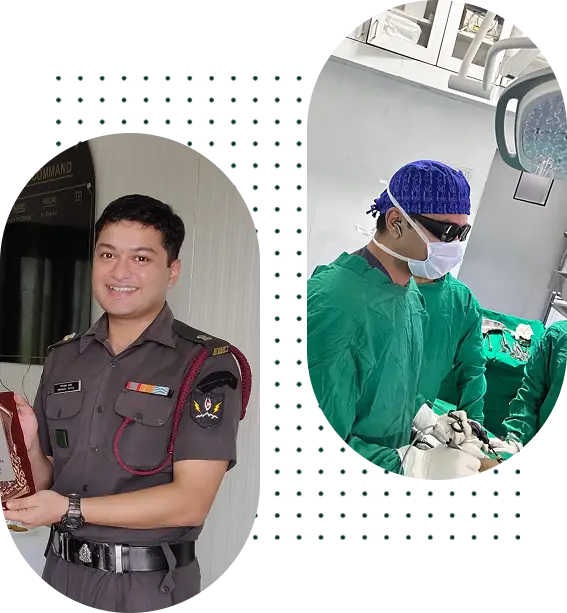Urinary Bladder Cancer Doctor in Kolkata
Or struggling with frequent, urgent trips to the bathroom?
These may not be just signs of a urinary infection or ageing. Instead, they could point to something more serious, like bladder cancer.
For precise care and expert evaluation, consult Dr. (Maj) Ranajoy Dutta. With years of expertise and a strong focus on surgical oncology, Dr. Dutta offers specialised urinary bladder cancer treatment in Kolkata with a compassionate, patient-first approach.
What is Urinary Bladder Cancer?

Urinary Bladder Cancer Types

Transitional Cell Carcinoma (TCC)
The most common type of bladder cancer, originating in the transitional cells that line the inside of the bladder.

Squamous Cell Carcinoma
A type of bladder cancer that develops from squamous cells, which can form in the bladder as a result of chronic irritation or infection.

Adenocarcinoma
It is a rare form of bladder cancer that arises from glandular cells, which are responsible for producing mucus in the bladder lining.

Small Cell Carcinoma
An aggressive and rare type of bladder cancer that starts in neuroendocrine cells and tends to spread quickly.

Sarcoma
A rare form of bladder cancer that begins in the connective tissues, such as muscles or blood vessels, of the bladder wall.
Bladder Cancer Causes

Call for Appointments
Begin your treatment journey with expert care. Schedule your appointment with Kolkata’s esteemed cancer specialist Dr. (Maj) Ranajoy Dutta today.

Bladder Cancer Symptoms
Lower back pain or pelvic discomfort

Bladder Cancer Diagnosis

Urine test

Ultrasound

Cystoscopy (camera into the bladder)

Biopsy
Urinary Bladder Cancer Treatment in Kolkata
Dr. Dutta offers advanced, minimally invasive treatment based on the stage and spread of the tumour.
Initial treatment usually begins with TURBT (Transurethral Resection of Bladder Tumour), followed by intravesical therapy (medicines directly into the bladder). When the cancer hasn’t spread to other parts and hasn’t invaded muscle tissue, Dr. Ranajoy may recommend partial or radical cystectomy (bladder removal), with reconstruction options or urinary diversion.
In more advanced cases, chemotherapy, radiation, or immunotherapy may be recommended as a part of a complete bladder cancer treatment plan tailored to the patient’s condition.
Confused about treatment options? Book your appointment today with Dr. Dutta, a well-respected urinary bladder cancer surgeon in Kolkata and take the first step towards recovery.
Fill The Form
Contact Form

Make Appointment &
Take Care Of Your
Healthy Life

